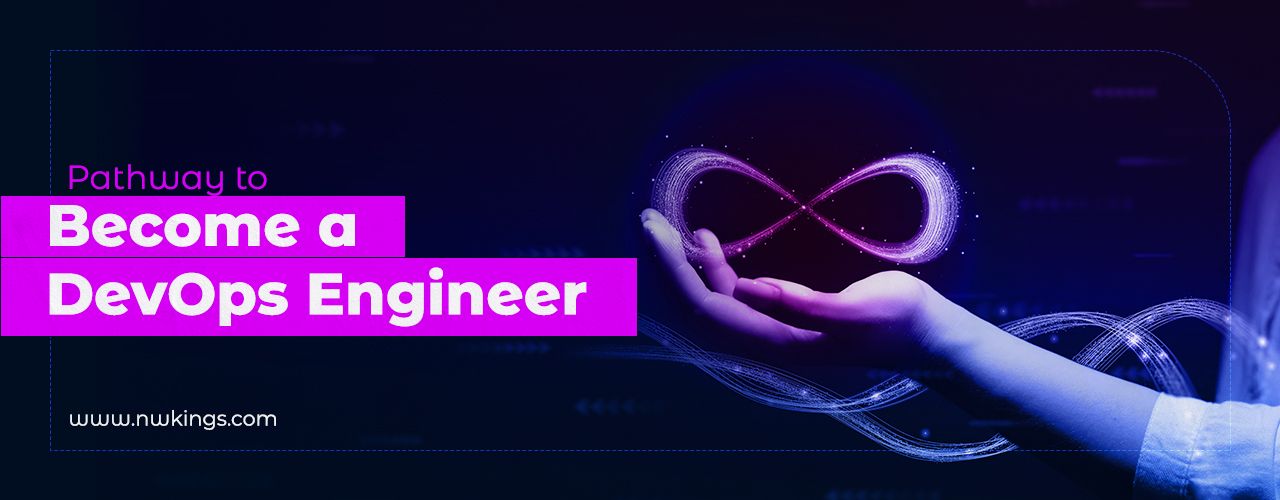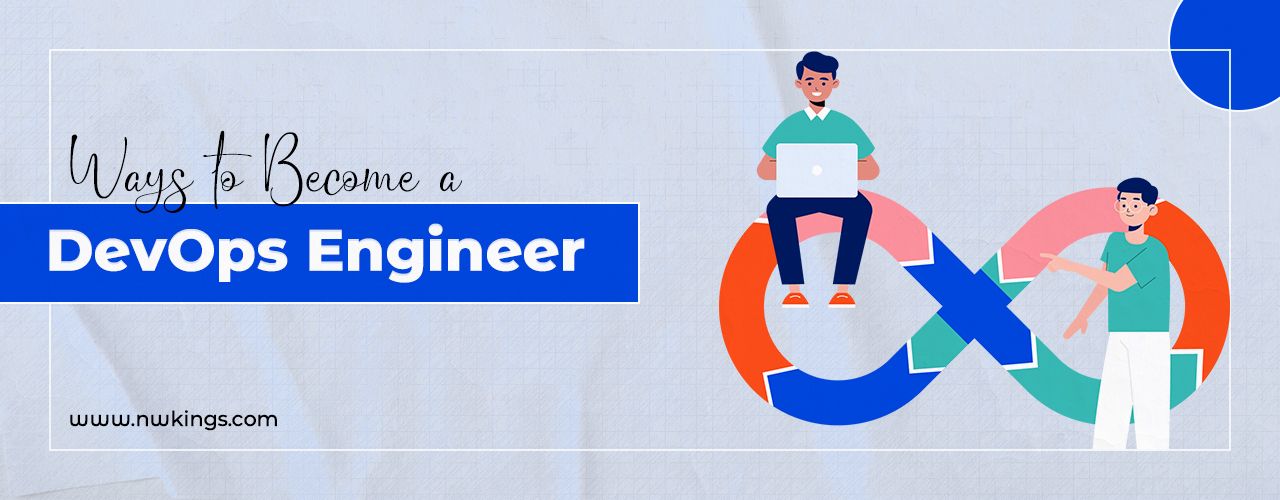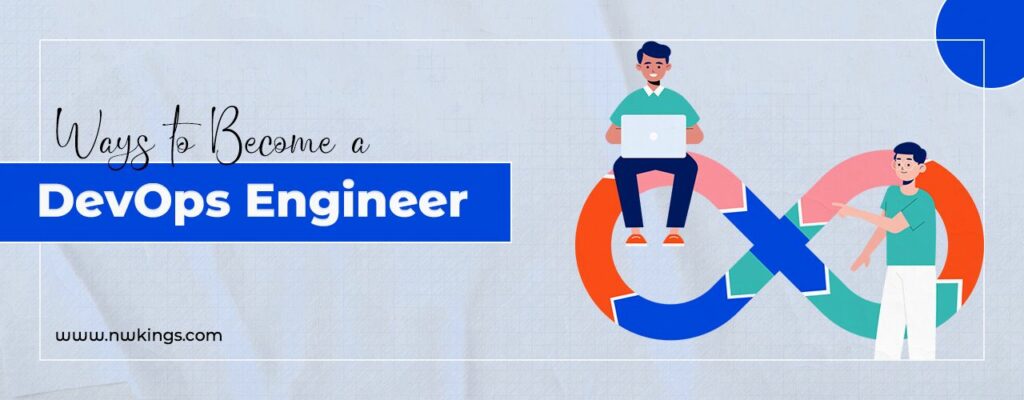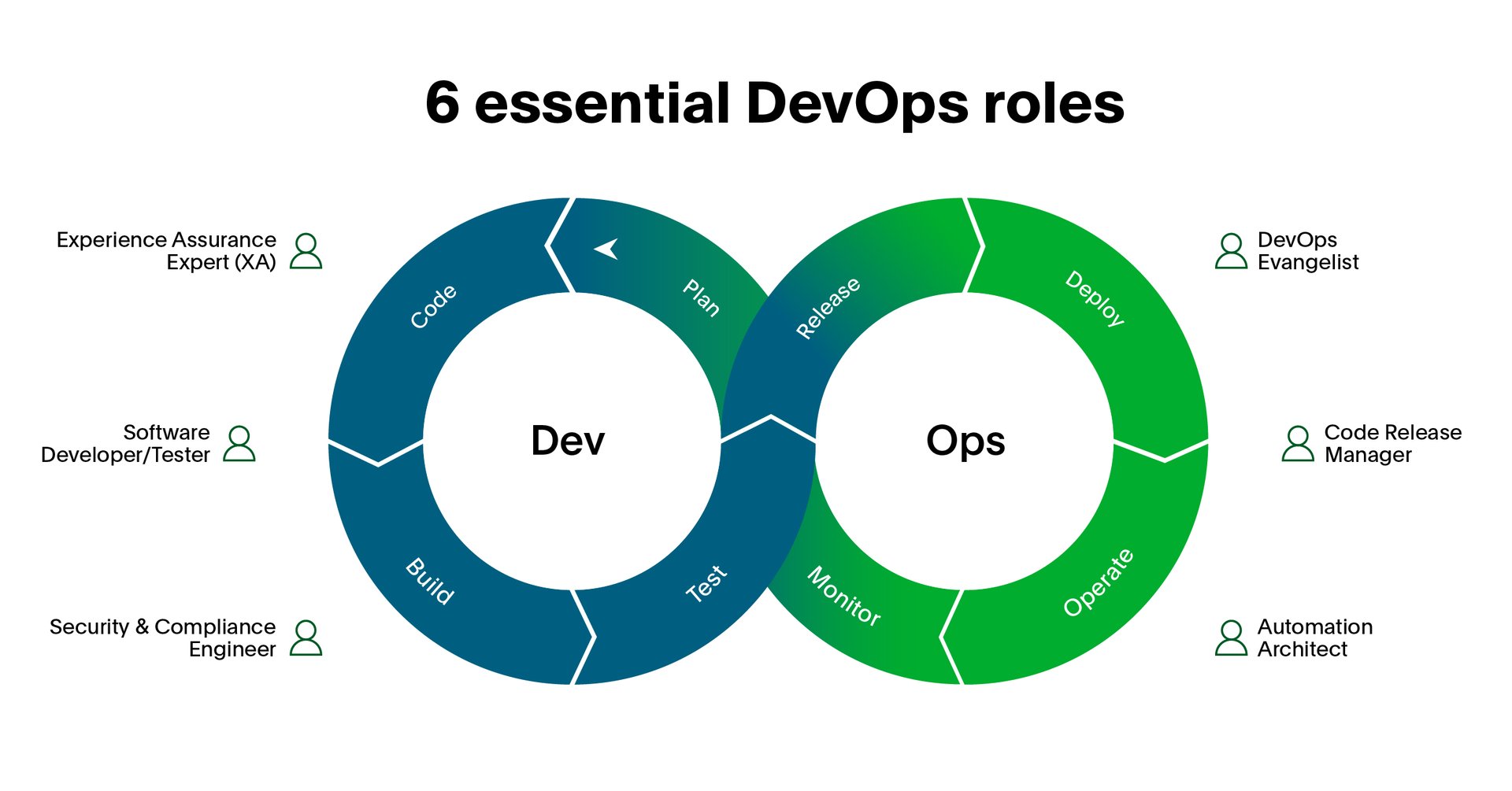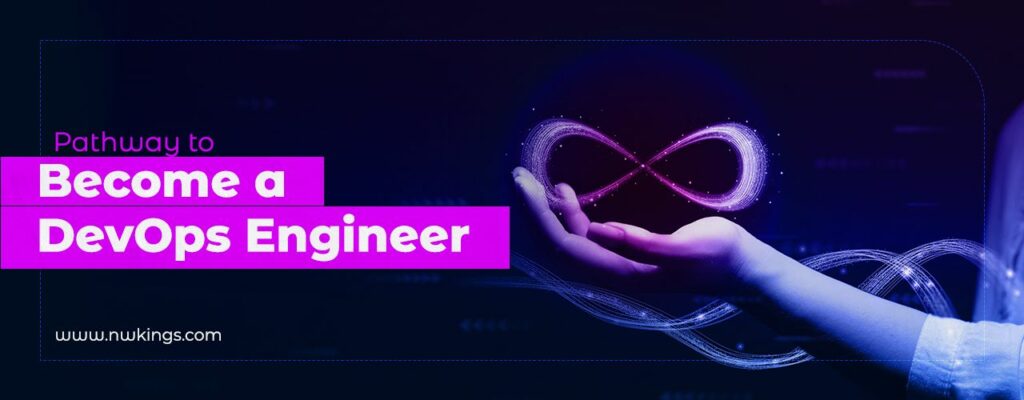
The trend to become a DevOps engineer is through the roof this year! A lot of people want to become a DevOps Engineer but let’s address the main question: what is a solid DevOps engineer roadmap?
This is what this blog is all about. You’ll learn about the DevOps Engineer roadmap. Because of its extensive cultural aspects along with the technical knowledge, it is comparatively difficult to enter the DevOps industry as a fresher. This is why industry experience plays a crucial role in becoming a DevOps Engineer.
A DevOps Engineer does more than just ‘automation’. He acts as a medium of collaboration/communication between software development and IT operations. Therefore, the role of a DevOps professional is more generalized that being a specialized professional in a specific tool.
DevOps Engineer Roadmap: Essential Skills and Technologies
A DevOps Engineer needs to have good technical skills as well as soft skills. He must be aware of all the core technical tools required. The essential skills and technologies include the following:
Proficiency in scripting and automation:
The first step to becoming an outstanding DevOps Engineer is to have good expertise in programming and scripting languages. By being handy at scripting languages, you can easily automate the process of application release/product development.
It is recommended to be proficient in the following programming/scripting languages:
- Python
- Ruby
- Node.js
- PHP
- JavaScript
- Shell scripting
- Golang
Knowledge of cloud platforms and infrastructure:
Since most business organizations have shifted their infrastructure to the cloud, it is important to understand how various applications are hosted on cloud vendors such as Amazon Web Services (AWS), Google Cloud Platform (GCP), and Microsoft Azure, etc.
The use of cloud computing platforms has cut down the costs of hosting applications and spending money on buying physical servers.
Understanding of containerization and orchestration:
These abilities are helpful early in the process. Applications can be efficiently released and deployed as a bundle. Different container orchestration tools, like Docker & Kubernetes, OpenShift, etc., make these activities possible.
In a highly available environment, these technologies can automate the processes of scaling, configuring, provisioning, load-balancing, securing, and assigning resources.
Familiarity with CI/CD pipelines and tools:
Whenever we talk about DevOps, the phrases ‘Continuous Integration’ and ‘Continuous Development’. A DevOps Engineer must be aware of these processes. This is because, oftentimes, when an application is pushed to the server by the software development team, there could be bottlenecks in the system. These bottlenecks could arise because of issues with the servers. The servers are the responsibility of the operations team.
To resolve issues between the two and make the process of verifying, packaging, releasing, and monitoring easy, a DevOps engineer must be aware of the CI/CD pipelines
Note: if you want to learn more about DevOps engineer skills in details, you can check out the blog here.
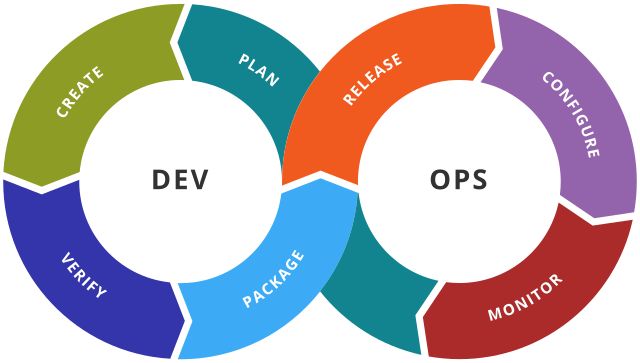
Navigating the DevOps Engineer Roadmap in 2024
Let’s examine the current trends in the industry related to the popularity of DevOps as a well-established part of the world.
According to the DevOps Global Market Report 2023, the DevOps market is forecasted to grow at a CAGR of 22.9%! This means that the global industry will hit over $ 24.71 billion USD by the year 2027.
This data makes it evident that there have been major advancements in the DevOps field in the past few years. To back up this information, the use of DevOps is not just limited to the IT industry. It has engraved ints grooves in many other different markets, including healthcare, manufacturing, IT and telecommunications, and retail, etc.
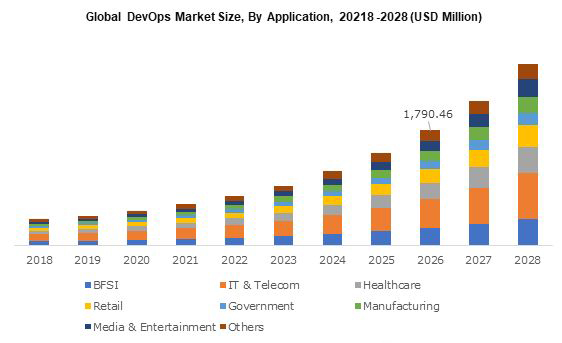
These trends are quite evident from the above image as the global industry is projected to grow at a CAGR of 25% approximately. Thanks to the constant need to improve the process of software delivery and make it efficient, fast in enterprises.
How to stay updated with the fast-paced world of DevOps?
Since DevOps is a new-world technology, it is bound to keep evolving with time. New tools and technologies related to DevOps emerge almost every day. It could be overwhelming to stay updated with all the upcoming tools. This is why filtering out what’s necessary and something that aligns with your career goals is important for an aspiring DevOps professional. You can follow the following DevOps Engineer roadmap:
Enroll in a course to stay updated:
One of the best ways to stay ahead of time is by continuously learning and staying updated. If you’re a beginner in the field of DevOps and you don’t know which tools you should learn, you can opt for Network Kings’ DevOps Master’s program. This program is specially created by DevOps Engineers with over 12 years of experience.
This DevOps course covers all the state-of-the-art tools and technologies that can keep you updated with industry standards and help you land your first DevOps job!
Leverage industry resources and communities:
Whenever a new technology is released in the DevOps industry, one of the best ways to stay updated is by attending upcoming events that discuss the best DevOps tools, technologies, philosophies, and practices. You can also join various communities formed by DevOps professionals to get familiar with the industry’s best practices.
Building a Successful Career: Roadmap for DevOps Engineers
The secret to building a successful career in DevOps lies in organized planning and a clear future vision. It is crucial to set short-term and long-term goals to build a solid career in a competitive industry like DevOps.
Identifying career goals and objectives:
If you want to create a solid career in DevOps, the first thing that you need to ask yourself is: ‘What do I want to achieve in my DevOps career?’
This is when you can think about what profession you are targeting. It could be becoming a DevOps Engineer, a DevOps Architect, an Automation Engineer, or a DevOps team leader. Based on your career vision, you can trace out a roadmap to only learn specific technical skills that align with your career goals.
Short-term and long-term targets:
Once you’re clear in terms of what you want to become, it is realistic to plan short-term and long-term targets. Following a solid DevOps Engineer roadmap is necessary for a successful career.
Your short-term targets can include learning a specific set of skills, applying for a job to get hands-on industry experience and working on projects for your portfolio.
The long-term targets can include contributing to the industry by joining DevOps communities, getting leadership roles and working on large-scale projects. This way, you can develop and grow your career in the domain.
Mapping out necessary skills and competencies:
There are numerous tools and technologies out there when it comes to learning DevOps methodologies. You shouldn’t get confused about which technologies you should focus on. This is why we have created a list of the most important tools and technologies that you must focus on:
Learning programming and scripting languages:
Start your DevOps journey by learning about programming and scripting languages such as Python, PHP, Node.js, JavaScript, Ruby, etc. These help you in performing automation tasks.
Learning about operating systems:
It is important to learn about operating systems such as Windows, Linux, etc. We recommend you learn about Linux as 90% of the public cloud workloads run on Linux. Also, it is one of the most secure operating systems out there.
Learning about network security:
Oftentimes, you would need to work with firewalls, load-balancing, performing network security tasks, etc. to protect your servers/code, especially during the stages of deploying and releasing applications. You must be aware of various networking protocols such as HTTP, HTTPS, SSL, SSH, etc.
Continuous Integration/Continuous Deployment (CI/CD):
By learning tools such as Jenkins and Git, you can become proficient in performing CI/CD methodologies and ease the process of building, testing, deploying, and releasing code changes.
Infrastructure as Code (IaC):
As a DevOps Engineer, you must know how to use Infrastructure as Code (IaC) resources such as Terraform to automate codes for designing and deploying infrastructures.
Containerization and orchestration:
It is important to learn containerization and orchestration tools such as Docker and Kubernetes to deploy and release applications as a package efficiently.
Getting familiar with the cloud:
Since most businesses have shifted their infrastructure to the cloud, it is crucial to learn about cloud platforms such as AWS, GCP, Microsoft Azure, etc.
Logging, troubleshooting and monitoring:
You must know how to read all the logged events and records to make the necessary changes in the code-pushing processes. You need to understand how to monitor and troubleshoot systems to bring out the best application performance.
Seeking relevant certifications and training opportunities:
To put your best foot forward in the DevOps industry, obtaining necessary and relevant certifications under your belt is the best way to begin a successful career in the industry. You can begin by taking certifications from recognized organizations like AWS, Microsoft, Kubernetes, etc.
On top of that, you should also explore internship opportunities, work on projects in collaboration with your peers and contribute to open-source resources such as GitHub to bring forth your presence in the industry.
Key Milestones and Competencies on the DevOps Engineer Roadmap
Every company has its own set of skill requirements when hiring for the role of a fresher/experienced DevOps Engineer. Yet, we have mentioned a certain set of skills that are suitable at each level of your career. These are as follows:
Entry-level skills and responsibilities:
- Basic knowledge of scripting and programming language: Python, PowerShell, JavaScript for automation.
- Operating systems knowledge: Windows or Linux OS knowledge.
- Network security skills: Familiarity with networking protocols such as SSH, HTTPS, etc.
- Infrastructure as Code (IaC): Terraform to manage infrastructure.
- Version-control: Git to manage repositories of code.
- CI/CD: Jenkins, GitLab to look after the CI/CD pipelines.
- Monitoring and logging: Prometheus, Grafana, and ELK stack for monitoring and troubleshooting.
- Cloud computing fundamentals: Familiarity with cloud platforms such as AWS, and GCP.
- Collaboration skills: Having good communication skills.
Intermediate-level skills and responsibilities:
- Knowledge of how the Cl/CD pipeline works.
- It is good to be handy with software development and IT operations teams.
- Having good knowledge of programming languages like Ruby, Python, JavaScript, etc. and automating workflows.
- Using tools like Docker and Kubernetes to carry out containerization and orchestration.
Advanced-level skills and responsibilities:
- Expertise managing, leading, and maximizing workflow in the DevOps environment with huge teams.
- Perform sophisticated logging, reporting, and monitoring.
- A deeper comprehension of using DevSecOps.
- A thorough knowledge of design architecture for cloud computing platforms like AWS, GCP, etc.
- Performing tasks related to infrastructural growth.
Expert-level skills and responsibilities:
- Advanced automation: Use advanced automation to improve workflows.
- advanced security: Carry out security audits with advanced security.
- Build scalable infrastructure: Use the architectural design process to practice scalability and performance.
- Optimize apps: Apps hosted in the cloud can be optimized for cost-effectiveness.
- Collaboration and effective communication: You must have excellent communication and soft skills to talk to the stakeholders.
- Leadership qualities: As a proficient Senior DevOps Engineer, having leadership qualities is important. You can only lead a team if you have exceptional team spirit.
Mastering the DevOps Engineer Roadmap: A Guide to Success
Here are some methods for improving your skills in the DevOps industry. Once you have practical experience, you can enter the industry completely prepared.
Gaining hands-on experience through projects and collaborations:
If you’re a fresher seeking a job in the DevOps field, you can work on several small-scale projects by yourself to add them to your portfolio. This would show your enthusiasm for the field and your readiness to offer your DevOps efforts. If you already hold an entry-level DevOps position, you can also work on a project alongside your peers.
Seeking mentorship and guidance from experienced professionals:
Working under a skilled DevOps Engineer is one of the finest ways to gain a sense of what a DevOps Engineer does on a daily basis. LinkedIn enables you to connect with qualified DevOps experts. You can then ask them about the primary functions of the domain and how to be successful in it.
Crafting Your Journey: Roadmap for Becoming a DevOps Engineer
It is important that you take the following steps to become irreplaceable in the DevOps industry:
- Learn technical skills including automation and programming languages.
- Learn the essentials of network security and operating systems.
- Learn about DevOps procedures and Agile approaches.
- Learn more about AWS, GCP, and other cloud computing platforms.
- Work on your own personal projects and carry out automated tasks to gain practical experience.
- Collaborate on projects with people and network with DevOps professionals.
Importance of foundational knowledge and learning resources:
If you’re starting out as a fresher, it is crucial to enroll in a professional or certification course to gain practical knowledge in a competitive domain, such as DevOps. The best way is to enroll in an online course.
You can check out the DevOps course by Network Kings where you can learn directly from DevOps Engineers with years of experience. You also gain hands-on knowledge and get a DevOps Engineer roadmap directly from Engineers. You can then become ready for a job!
Identifying relevant job opportunities and internships:
You can look for relevant jobs and internships by following these strategies:
- Apply for jobs through LinkedIn, Indeed, Naukri, etc.
- If you have a specific company in your mind, you can look at their career pages to find job openings relevant to you.
- You can ask for referrals from your LinkedIn connections/friends.
- Make sure that you tailor your resume according to a particular job opening that you’re applying for.
Exploring the Future: Roadmap for DevOps Engineers in 2024
In the upcoming years, you can witness continuous growth in the DevOps market, especially in the monitoring and performance-management field. It is projected to grow up to $6,410.3 million by 2027.
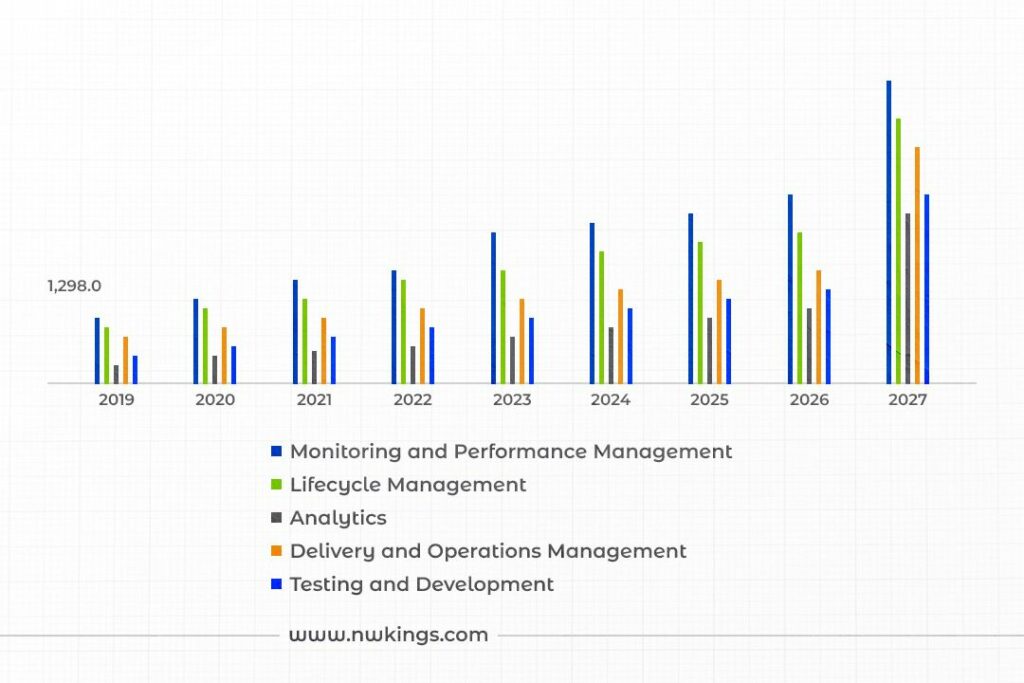
DevOps is gaining traction already and we can expect it to merge with Artificial Intelligence. The adoption of Artificial Intelligence for IT Operations (AIOps) is going to become significant in the industry. Thanks to its special ability to reduce bottlenecks and speed up the troubleshooting process in DevOps.
You can expect the following emerging technologies to establish a renowned place in the DevOps industry:
- Multi-cloud: There will be significant adoption of hybrid and multi-cloud environments to address latency issues.
- Serverless computing: Serverless computing will play a significant role in the market. This would drastically lower the cost of the servers.
- Use of minimal coding: One of the best examples is the Salesforce platform, which generates customer 360s with AI, automation, and data and utilizes very little code for development.
DevOps technologies to expect in 2024:
Every business organization wants to get ahead of the curve. This is why we can expect the adoption of new tools and technologies this year. These include:
- ML and AI: Enhanced use of ML and AI to automate and optimize workflows, especially during the processes of application release and product development.
- Cloud-native tech: Increased adoption of cloud-native technologies such as Kubernetes, etc. for scaling and deploying applications.
- Serverless computing: Faster deployment of applications by using serverless computing that requires no management of infrastructure.
- DaaS: The new-age service, DevOps as a Service (DaaS) is gaining traction as other parties are selling DevOps services to business organizations. This can allow organizations to outsource their DevOps workload and focus majorly on operational tasks.
Preparing for future challenges and opportunities in 2024:
There are certain practices that you can follow to create a solid career in DevOps:
- Contribute to the community: It is the best resort to work on projects, build your portfolio and attend community events. You can also contribute to the projects on GitHub.
- Constant upskilling: It is important to keep updating yourself if you’ve entered a fast-paced technology like DevOps. You can enroll in hands-on courses and certification courses.
- Advanced technologies: You need to become constantly better at technologies such as automation and cloud computing.
- Enhanced communication skills: You must also focus on improving your soft skills.
Conclusion
That’s a wrap! DevOps is a competitive domain that demands years of experience making it a little hard for freshers to break directly into the industry. It is important to follow a specific DevOps Engineer roadmap to gather all the necessary skills to succeed in the DevOps domain.
It should be your duty to take proactive steps to become future-proof in the industry by working on portfolio projects, attending DevOps events, and participating in communities. You must also focus on constant upskilling and learning.
If you’re an aspiring DevOps Engineer, you should enroll in a DevOps course that trains you with a practical approach. Gaining hands-on skills can take you a long way.
Happy learning!

